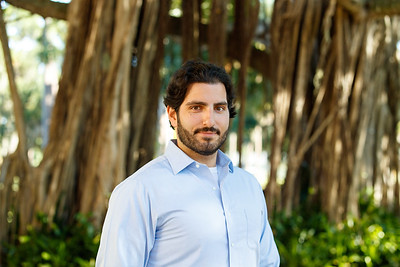Carbon tax research gives hope in fight against climate change

Image courtesy of the New College of Florida’s website (August 21, 2018; Photo by Casey Brooke Lawson)
November 16, 2018
There is hope for a solution for climate change and wealth inequality; such a solution was presented at a Nov. 9 talk in LaFayette Hall.
Entitled “The Impact of Carbon Tax on Inequality in the United States,” the presentation by Mark Paul, as associate professor at the New College of Florida, explained his research on how a carbon tax with a dividend could address those issues.
In this model, the money collected through a tax of $50 per ton of carbon emitted by an activity or product would be distributed back to taxpayers with a dividend, allowing for wealth redistribution, he said.
This method was more beneficial to lower income brackets, people of color, rural as well as young and old Americans compared to redistribution of the tax money through payroll tax cuts or a rebate with the labor tax, Paul said.
Based on the groups that benefit the most from this method, there is a possibility for bipartisan support for this carbon tax, he said.
“I think the idea of a dividend can be politically salient for a broad political coalition,” Paul said.
The goal of the carbon tax is to disincentive emitting carbon, which is causing the warming of the atmosphere that drives climate change’s effects, such as more frequent intense weather events like droughts and hurricanes, Paul said.
The wealth redistribution is to prevent this tax from being too regressive, since those who have the least means would have the hardest time accessing newer, more efficient technologies, making them the hardest hit by this tax, he said.
Stephanie Seguino, an economics professor at UVM, said that economists aim to use their research to create policy that helps people when introducing Paul before his talk.
Seguino said that Paul has recently met with Vermont legislators to discuss a potential carbon tax that is going to be considered for the next legislative session.
He has also spoken with Senator Cory Booker, D-NJ, about the possibility of a $20 per ton of CO2 tax should the Democrats take back Congress in 2020, Paul said.
However, this is not enough of a solution to adequately fix all of wealth inequality and climate change problems, he said.
To take the threat of climate change seriously a carbon tax of over $200 per ton of CO2 is needed, Paul said.
The Intergovernmental Panel on Climate Change, which compiles and analyzes available climate change data, said carbon emissions need to be decreased by 45 percent in the lext 11 years, which means immediate action needs to be taken with the economy, Paul said.
Sophomore Kieran Edraney attended the talk because he wanted to learn more about climate change and said it left him feeling somewhat more hopeful about addressing climate change.
“I’ve only ever seen a $50 max [carbon tax] and that this is a starting point in the paper and we need more like $230 dollars per ton; that’s not that great,” Edraney said. “But on the other hand, 45 percent in 11 years is a lot, but I was under the impression it was a lot worse.”
Despite his optimism of bipartisan support for the carbon tax and dividend plan, Paul believes a lot needs to change in Washington before that can become a reality, he said.
Paul hopes his carbon tax plan would be only one of many tools towards fighting climate change and wealth inequality, he said. He envisions a “Green New Deal,” which he is beginning look into, he said.
His carbon tax research, on which Paul worked with Anders Fremstad, an assistant professor at Colorado State University, is in the process of getting published.






